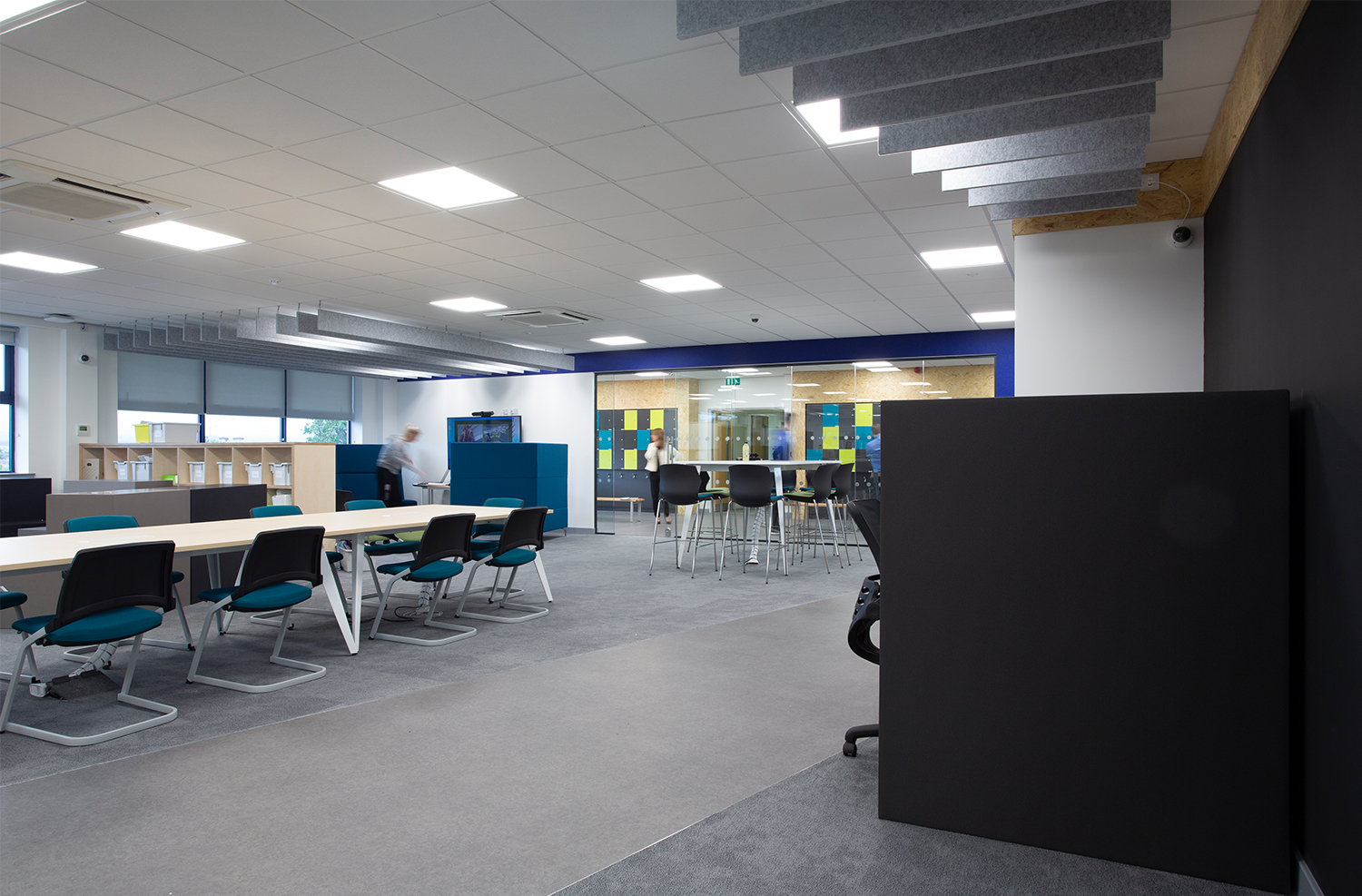
February, 2019
Commercial flooring has a significant impact on the functionality and the level of comfort of an office. While longevity is always a consideration when deciding on flooring materials, other factors are equally important.
4 important factors to consider when selecting commercial flooring
Not all finishes, particularly for businesses, are ideal for all spaces. Various factors come into play when selecting commercial flooring. Generally, a suitable commercial floor should be easy and fast to install as well as durable. It should also require minimum care.
1. Level and type of traffic into your office
High-traffic offices necessitate flooring that can withstand wear. Natural choices are of course Vinyl Tiles (or Planks) and Carpet Tiles but consideration should also be given to barrier tiles in entrance ways. Research proves that up to 90% of dirt in a building is ‘walked in’ or comes in via wheeled traffic. Having an entrance system and barrier matting is an effective way of ensuring longevity of all flooring types throughout the building.
We recommend choosing Carpet Tiles or Vinyl Tiles that are at least Class 32 for general commercial use and Class 33 for heavy commercial use. The standard specifies that the flooring product will last at least 10 years without presenting problems, if used in the designated room type (various domestic or commercial usage types), and on the condition that the floor has been installed according to the instructions and is used and maintained as prescribed.
There are additional requirements for carpet covering colour fastness, castor chair suitability, antistatic behaviour, acoustic properties, thermal resistance, suitability for humid conditions, suitability for use on stairs and fraying behaviour that should also be considered but having Class 33 gives a lot of reassurance.
The additional requirement for Vinyl Tiles in high traffic areas includes a consideration around slip ratings. We covered these considerations in a previous blog.
2. Flexibility in repair
An observation into office hallways shows that most activity takes place in this location and thus the floor is expected to wear out faster here than in other areas. Therefore, the flooring type selected for this area should be easy to replace and repair without inconveniencing movement within the premise. Vinyl tiles and carpet tiles are again both durable and easy to install, therefore they’re great options to consider.
3. Reusing or recycling the flooring material
Sustainability is always a key consideration. Even though this aspect does not relate directly to the durability of the flooring, if you intend to recycle or reuse your commercial flooring in future, it is better to be fully informed before making your decision.
Both Vinyl Tiles and Carpet Tiles do fit the bill, the amount of re-cycled content is a key question to be asking. The are a number of guides to the decision process but choosing reputable manufacturers is always a good start as it will be part of their environmental policies to ensure the most sustainable options.
4. Commercial factors
While taking into consideration the above factors, you should consider the most appropriate flooring for your office depending on your needs. While some materials are appropriate, they come at a very high cost, which might be overwhelming for small businesses. On the other hand, some are very cheap but fail to serve their purpose adequately.
Apart from budget issues, you should consider the life-cycle of the commercial flooring type. In most instances, flooring that requires lower preliminary costs might turn out to be more costly in the long run than those with higher preliminary costs. Ultimately, selecting a cheap flooring plan during the initial phase may result in more repairs and replacement.